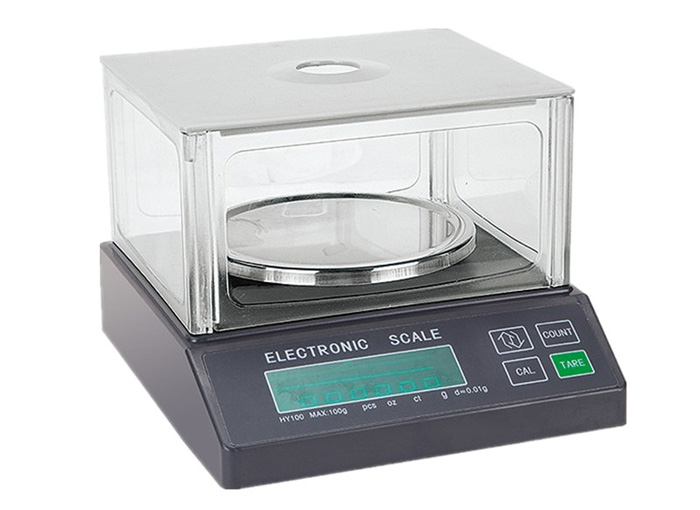EN
A weighing scale in chemistry lab consists of a beam with a friction-free fulcrum, a pointer which attaches to the beam and amplifies deviation from the balance position, and fractional weights which are applied along the beam's measuring arm. This weighing machine in chemistry lab provides high readability and a broad weighting range.
Often, the weighing pan is sealed to prevent the ingress of dust or other contaminants. Samples are maintained at room temperature to prevent the formation of air currents inside the enclosure. As a top electronic scale supplier in China, we can also provide such precision balance to our clients.
A weighing machine in chemistry lab refers to the instruments designed to measure the mass of various substances used in chemical processes. Accurate measurements of chemicals are crucial for obtaining reliable data, making it essential to use equipment that offers high precision. In a lab setting, a typical weighing machine might include either a mechanical or digital scale, but digital versions, such as electronic balances in chemistry, have largely replaced older mechanical models due to their superior precision and ease of use.

There are several types of weighing machines in chemistry labs that cater to different needs based on the level of precision required:
Analytical Balances: These are the most precise electronic balances in chemistry, capable of measuring mass with an accuracy of up to 0.0001 grams. Analytical balances are typically used when dealing with small amounts of chemical substances or when performing highly sensitive measurements.
Precision Balances: While slightly less accurate than analytical balances, precision balances still offer high levels of accuracy (usually to the 0.001 or 0.01-gram level). These balances are often used for general laboratory tasks that require accurate mass measurements but not the extreme precision needed in analytical work.
Toploading Balances: These chemistry digital scales are often used for larger samples that require quick and accurate mass determination. Toploading balances provide less precision than analytical balances but are still suitable for many types of chemical measurements.
An electronic balance is a type of laboratory equipment used to measure mass or weight. This kind of weighing scale in chemistry lab can be used in a variety of settings to measure a variety of substances, from solids and liquids to small particles and gases. In chemistry, electronic balances are used to measure the mass of small amounts of substances, such as for weighing out reagents for a reaction, or for measuring the mass of a product after a reaction. Electronic balances are also used in settings such as food production, quality control, and environmental monitoring.
A digital balance for chemistry lab is a precise, efficient tool for measuring the mass of various substances. This weighing balance in chemistry lab is a type of scale that uses strain gauge technology to provide accurate readings in grams, ounces, and other units of measurement. The digital balance is designed to be used in a laboratory environment, meaning it is highly resistant to environmental factors such as temperature, humidity, and pressure. It is also designed to be highly accurate and precise and to provide consistent results over time. The digital balance is an essential tool for measuring the mass of chemicals and other substances in a chemistry lab, as it allows for precise measurements that can be used for further analysis.
1. Accurate measurements: Electronic digital balance for chemistry lab is extremely accurate, allowing laboratory staff to measure items with a high level of precision.
2. Stable readings: Chemistry electronic balance is designed to provide stable readings, even when measuring items of different sizes and weights.
3. Automated weighing: Digital balance for chemistry lab can be programmed to automatically weigh items, eliminating the need for manual labour.
4. Easy to use: Chemical balance in laboratory is easy to use and require minimal training for new users.
5. Data logging: Many electronic digital balances for chemistry lab are equipped with data logging capabilities that allow laboratory staff to easily track and analyze data from experiments.
Selecting the right chemistry digital scale for your laboratory depends on several factors:
Accuracy Requirements: If you need highly precise measurements, an analytical balance will be your best option. For general laboratory use, a precision or toploading balance may suffice.
Weight Capacity: Ensure the weighing machine in the chemistry lab you select can handle the range of sample weights you plan to measure. Balances vary in their maximum capacity, so choose one that fits your needs.
Environmental Conditions: Consider the lab’s environment. If the lab is prone to vibration, an analytical balance with anti-vibration features may be necessary to maintain accuracy.
User Interface: Look for electronic balances that have clear and intuitive digital displays, making them easier for lab personnel to use. Some models also feature programmable functions to automate routine tasks.